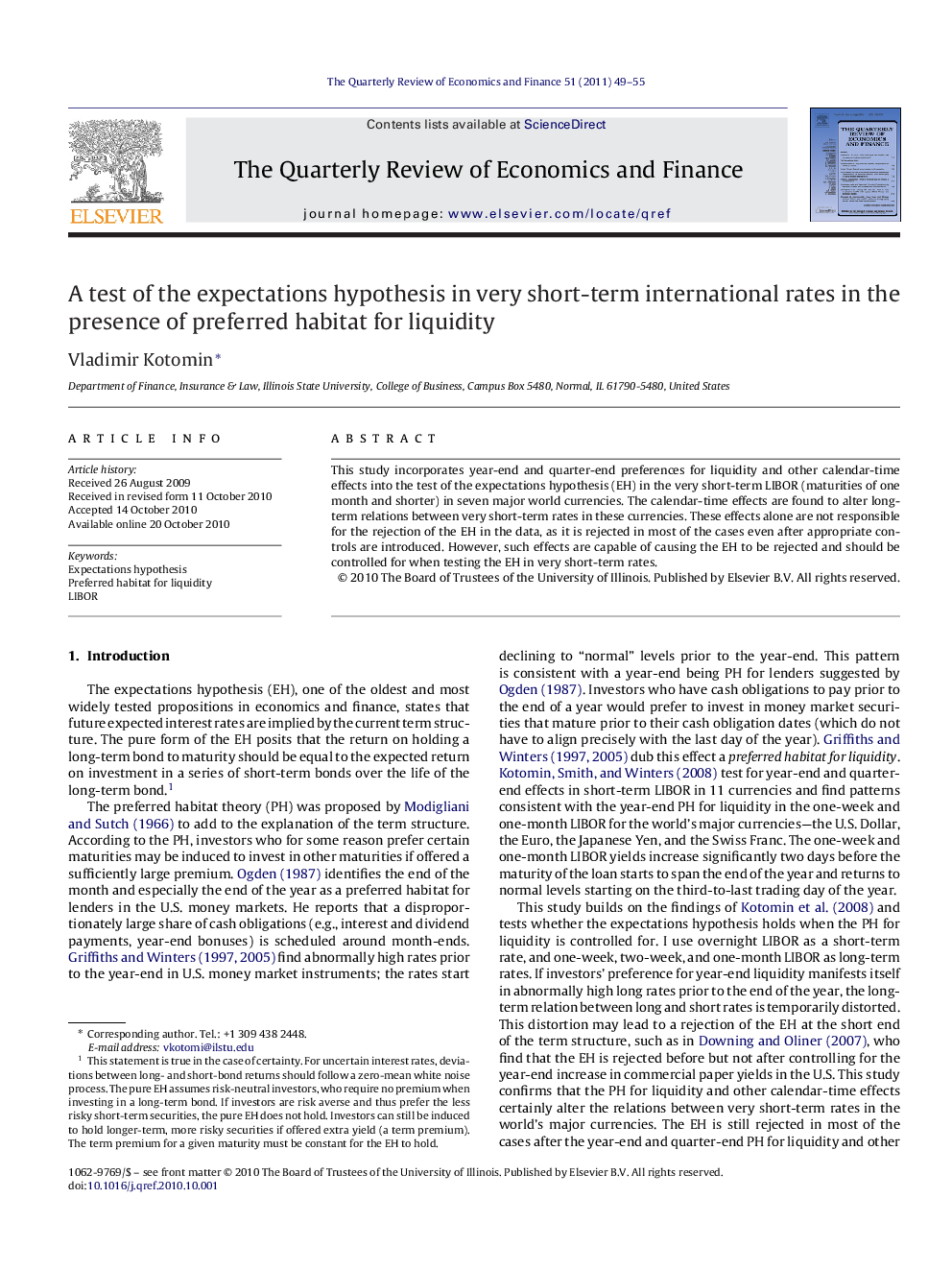| Article ID | Journal | Published Year | Pages | File Type |
|---|---|---|---|---|
| 982279 | The Quarterly Review of Economics and Finance | 2011 | 7 Pages |
Abstract
This study incorporates year-end and quarter-end preferences for liquidity and other calendar-time effects into the test of the expectations hypothesis (EH) in the very short-term LIBOR (maturities of one month and shorter) in seven major world currencies. The calendar-time effects are found to alter long-term relations between very short-term rates in these currencies. These effects alone are not responsible for the rejection of the EH in the data, as it is rejected in most of the cases even after appropriate controls are introduced. However, such effects are capable of causing the EH to be rejected and should be controlled for when testing the EH in very short-term rates.
Keywords
Related Topics
Social Sciences and Humanities
Economics, Econometrics and Finance
Economics and Econometrics
Authors
Vladimir Kotomin,
